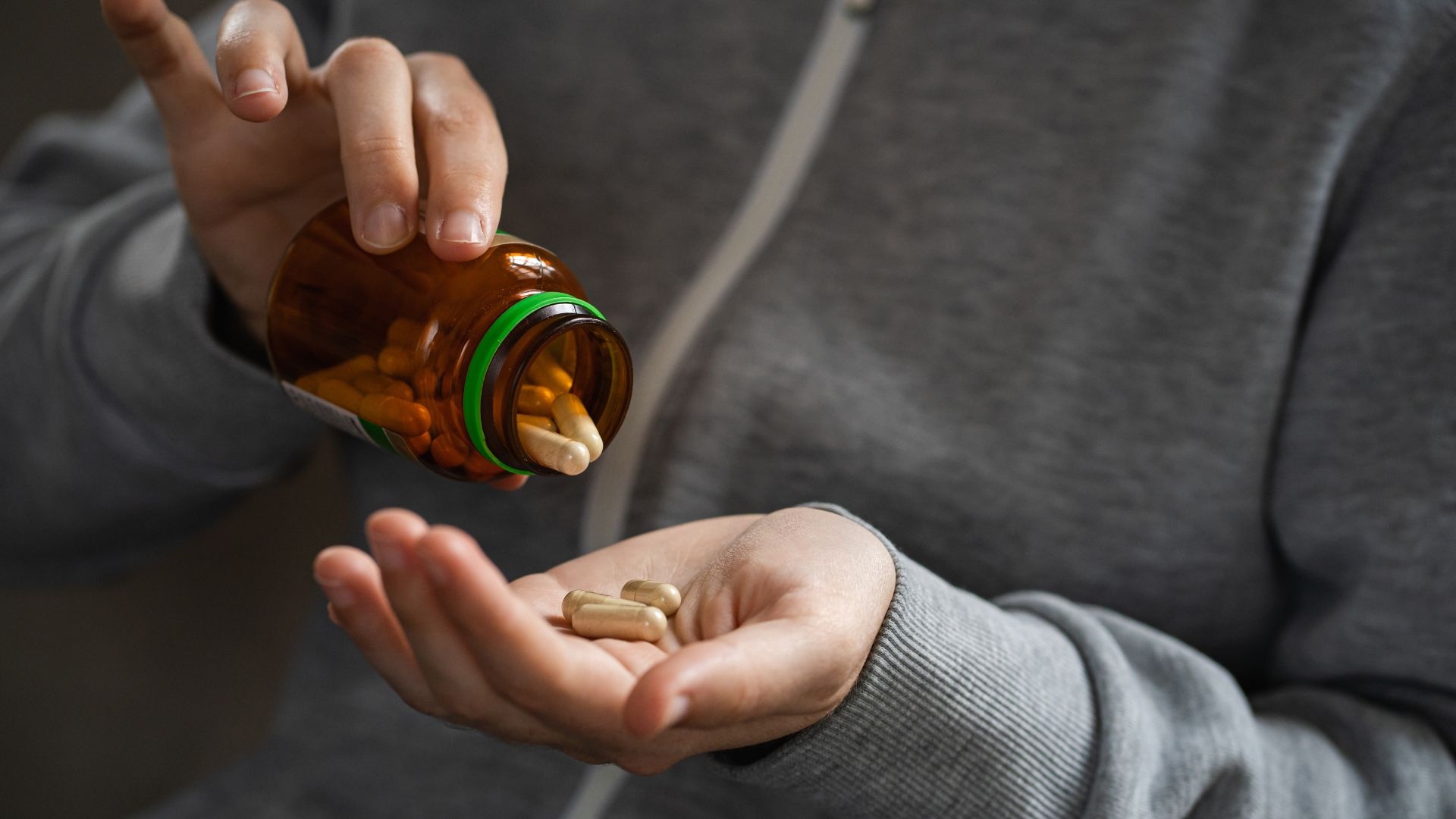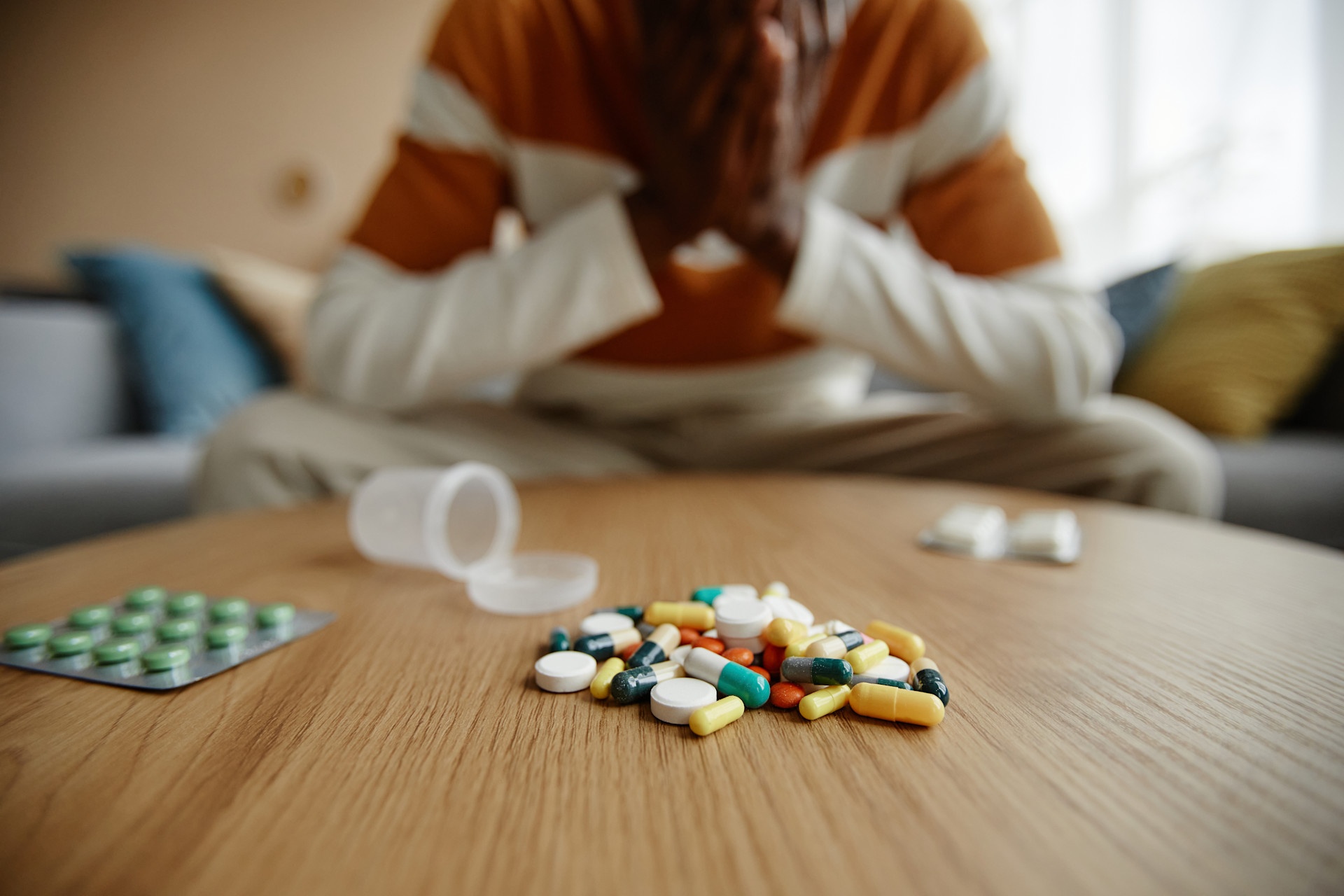Prescription Drug Addiction Rehab


Discover why specialized treatment is crucial for effective prescription drug addiction rehab. Explore tailored care, recovery strategies, and lasting solutions.
Prescription drug addiction has become an escalating concern, affecting countless individuals and their loved ones. Unlike other substance use disorders, prescription drug dependency often carries unique challenges, including the stigma of misuse and the complexities of medical necessity.
At The Forge Recovery Center, we understand that your journey to recovery requires specialized care tailored to your specific needs. Prescription drug addiction rehab isn’t a one-size-fits-all solution—it’s a personalized process designed to address the physical, emotional, and mental aspects of addiction. In this article, we will explore why specialized treatment is key to achieving lasting recovery and a better life.
Understanding Prescription Drug Addiction

Prescription drug addiction occurs when individuals misuse medications prescribed by healthcare professionals. Misuse can include taking higher doses than prescribed, using the medication for non-medical reasons, or continuing use despite harmful consequences. This type of addiction often begins with a legitimate prescription but evolves into dependency due to the medication's potent effects on the brain.
Prescription drug addiction has become alarmingly prevalent, with millions of people in the U.S. affected annually. Data reveals that opioids, benzodiazepines, and stimulants are among the most commonly abused prescriptions. This issue spans various demographics, impacting people of all ages, socioeconomic statuses, and backgrounds.
Commonly Abused Prescription Medications
Opioids
Often prescribed for pain relief, opioids like oxycodone and hydrocodone carry a high risk of addiction. They provide a euphoric effect that can quickly lead to physical dependency, especially when misused.Benzodiazepines
Medications such as diazepam (Valium) and alprazolam (Xanax) are used to treat anxiety and insomnia. However, their calming effects make them prone to misuse, leading to addiction.Stimulants
Typically prescribed for attention disorders, drugs like amphetamines (Adderall) are sometimes misused to enhance focus or energy, resulting in addiction over time.
Risk Factors
Understanding the factors that increase the likelihood of prescription drug addiction can help you or your loved one identify potential vulnerabilities:
Personal or Family History of Addiction
Genetics and family dynamics play a significant role in the development of addiction, with individuals who have a history of substance abuse being at higher risk.Chronic Pain or Illness
Prolonged use of prescription medications for conditions like back pain or arthritis can lead to dependency as the body builds tolerance to the drug.Mental Health Disorders
Co-occurring issues such as anxiety, depression, or PTSD often drive individuals to misuse prescription medications as a way to self-medicate.Social and Environmental Influences
Easy access to medications, peer pressure, or high-stress environments can contribute to misuse and eventual addiction.
By understanding these aspects of prescription drug addiction, you gain valuable insight into the scope of the issue and the factors that might affect you or your loved one. Recognizing these patterns is the first step toward seeking the help you need for recovery.
The Necessity for Specialized Treatment

Recovering from prescription drug addiction requires a unique approach tailored to the complexities of this condition. Unlike illicit drug addiction, prescription drug dependency often begins with legitimate medical use, making it harder to recognize and address. Specialized treatment ensures that every aspect of your journey is handled with precision and care, providing the foundation for lasting recovery.
Complexity of Prescription Drug Addiction
Differences from Illicit Drug Addiction
Prescription drug addiction often carries the dual challenge of addressing both the addiction itself and the medical condition for which the medication was prescribed. This creates a delicate balance between managing health needs and breaking dependency, which differs significantly from addressing illicit substance use.Challenges in Recognizing Dependency
The legitimate use of medications can mask signs of dependency, delaying intervention. Many individuals may not even realize they have developed an addiction, as they associate their usage with medical necessity rather than misuse.
Tailored Treatment Approaches
Medical Management of Withdrawal Symptoms
Withdrawal from prescription drugs can be physically and emotionally taxing. Specialized treatment involves medically supervised detox to manage symptoms safely and effectively, ensuring your comfort throughout the process.Addressing Co-occurring Mental Health Conditions
Mental health disorders often intertwine with prescription drug addiction. A specialized program integrates care for both issues, providing therapies like Cognitive Behavioral Therapy (CBT) to address underlying causes and foster resilience.Developing Non-pharmacological Pain Management Strategies
For individuals initially prescribed medications for chronic pain, finding alternative methods of pain relief is critical. Techniques such as physical therapy, mindfulness practices, and holistic treatments are incorporated to reduce reliance on medication while improving quality of life.
Specialized treatment is essential for navigating the multifaceted challenges of prescription drug addiction. By addressing the unique needs of individuals, these programs pave the way for a healthier, more sustainable recovery.
Are You Struggling with Mental Health or Addiction?
We Can Help. Call Us Now!
CALL: 877-839-1772
Components of Specialized Prescription Drug Rehab
Effective recovery from prescription drug addiction requires a comprehensive, multi-faceted approach. Specialized rehab programs are designed to address the unique challenges of dependency while fostering long-term recovery. Here’s a closer look at the critical components of these programs and how they work together to support you or your loved one.
Comprehensive Assessment
Recovery begins with a thorough evaluation of your medical history, substance use patterns, and mental health status. This step helps create a tailored treatment plan that addresses your unique needs, ensuring that no aspect of your care is overlooked.
Medically Supervised Detoxification
Detoxing from prescription drugs can be challenging and, at times, dangerous without proper medical oversight. Medically supervised detox ensures that withdrawal symptoms are managed safely and effectively, minimizing discomfort and reducing the risk of complications.
Individualized Therapy Plans
Cognitive-Behavioral Therapy (CBT)
This evidence-based therapy helps you identify and modify harmful behaviors and thought patterns associated with addiction, empowering you to make healthier choices.Motivational Interviewing
By enhancing your readiness for change, motivational interviewing builds your commitment to recovery and helps overcome ambivalence about treatment.
Medication-Assisted Treatment (MAT)
For opioid dependency, MAT can be a crucial component of recovery. Medications like buprenorphine or methadone are used to reduce cravings and withdrawal symptoms, allowing you to focus on therapeutic interventions and rebuilding your life.
Family Involvement
Addiction affects not just the individual but also their loved ones. Family therapy sessions rebuild trust, improve communication, and create a supportive environment, enhancing the overall recovery process.
Aftercare and Relapse Prevention
Developing Sobriety Strategies
After treatment, it’s vital to have a plan to maintain your progress. This includes learning coping mechanisms and creating a roadmap for navigating potential triggers.Support Groups and Ongoing Counseling
Connecting with peer support groups and continuing therapy provides accountability and a sense of community, reducing the risk of relapse and helping you sustain your recovery.
Specialized prescription drug rehab programs integrate these components to provide a holistic and effective approach to overcoming addiction. With the right support, you can achieve lasting recovery and a better future.
Benefits of Specialized Treatment Centers

Specialized treatment centers play a vital role in addressing the complexities of prescription drug addiction. They offer unique advantages that significantly enhance the chances of recovery and long-term wellness.
Expertise in Prescription Drug Addiction
Specialized centers provide access to professionals who are highly trained in the nuances of prescription drug addiction. These experts understand the specific challenges of treating dependencies tied to legitimate medical use and tailor interventions to ensure effective care.
Holistic Care
Addiction impacts more than just physical health—it affects your emotional well-being, relationships, and social functioning. Specialized treatment centers adopt a holistic approach, addressing all these aspects to provide comprehensive care. By treating the whole person, not just the addiction, these programs pave the way for lasting recovery.
Personalized Treatment Plans
No two journeys to recovery are the same. Specialized treatment centers develop customized plans that take into account your unique circumstances, history, and needs. This personalized care ensures that your treatment is both relevant and effective, improving outcomes.
Are You Struggling with Mental Health or Addiction?
We Can Help. Call Us Now!
CALL: 877-839-1772
Challenges in Accessing Specialized Treatment
While specialized treatment offers many benefits, there are also obstacles that can make it difficult for individuals to access the care they need. Understanding these challenges is an important step in overcoming them.
Stigma and Misconceptions
The stigma surrounding addiction can prevent individuals from seeking help. Many people feel shame or fear judgment, which can delay or even deter treatment. Raising awareness and normalizing conversations about addiction is essential in breaking down these barriers.
Resource Availability
Specialized rehab facilities are not always accessible in all areas, particularly in rural or underserved regions. This limited availability can make it challenging for individuals to find the appropriate care nearby, requiring travel or creative solutions to access treatment.
Financial Constraints
Addiction treatment can be costly, and navigating insurance coverage can add to the stress. Specialized centers often provide resources to help individuals understand their options, including financial assistance programs and payment plans, to make treatment more accessible.
Specialized treatment centers are invaluable in providing the expertise, holistic care, and personalization needed to address prescription drug addiction. By addressing challenges like stigma, availability, and financial constraints, these centers strive to ensure that help is within reach for anyone ready to begin their journey to recovery.
Prescription Drug Addiction Taking Over? We’ll Help You Take Back Control
Specialized treatment is crucial for overcoming the unique challenges of prescription drug addiction. By addressing the physical, emotional, and mental aspects of dependency, it paves the way for effective, long-term recovery. At The Forge Recovery Center, we understand that no two journeys are the same. That’s why we offer personalized, compassionate care tailored to your specific needs. If you or a loved one is struggling with prescription drug addiction, don’t wait. Reach out to us today, and let us help you take the first step toward a healthier, addiction-free future. Recovery is possible, and we’re here to guide you.
Are You Struggling with Mental Health or Addiction?
We Can Help. Call Us Now!
CALL: 877-839-1772





